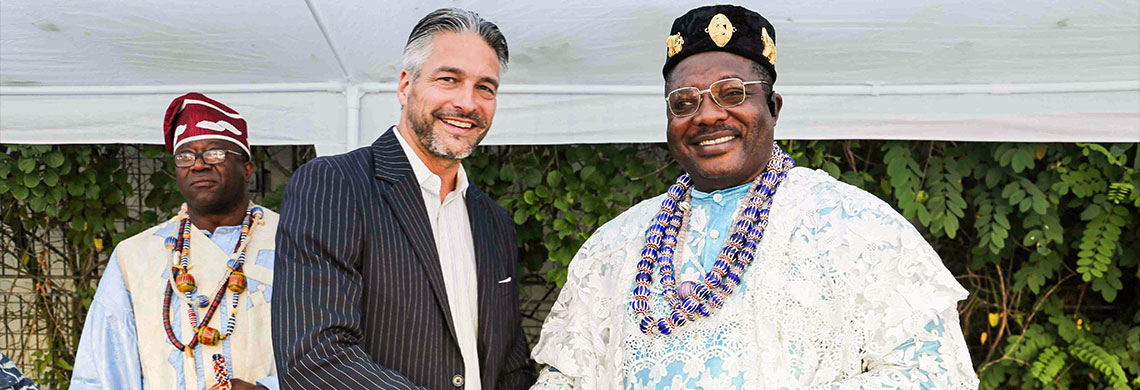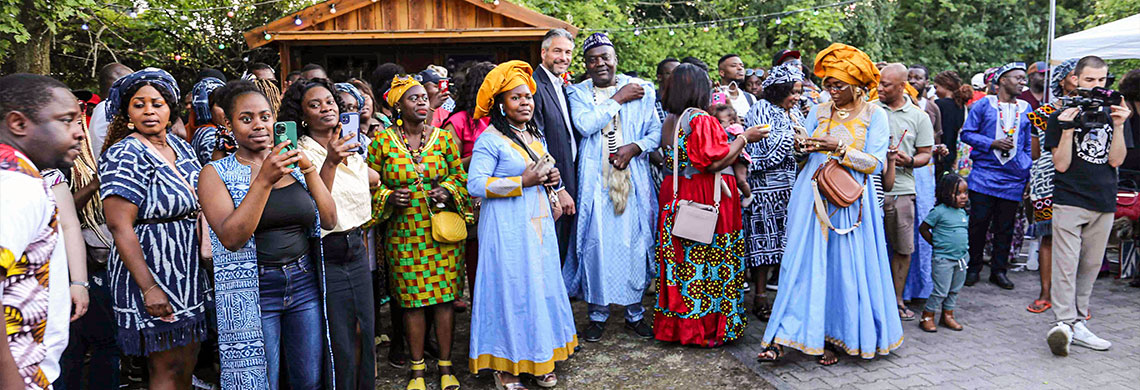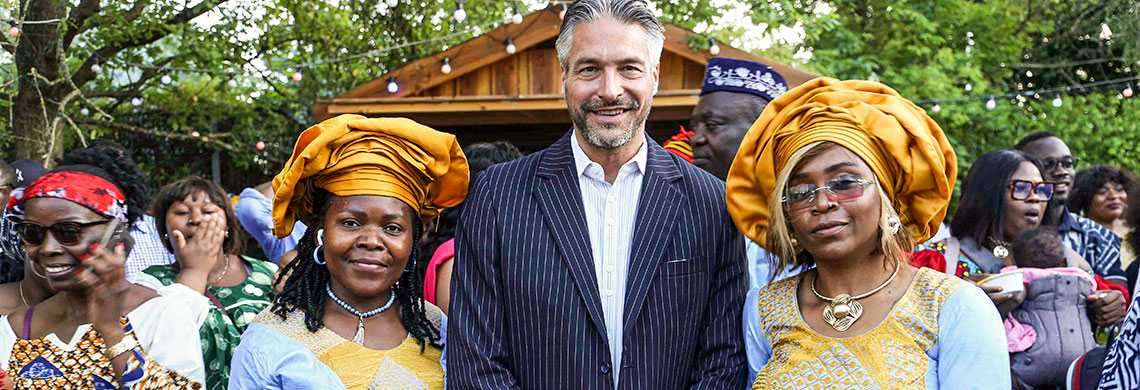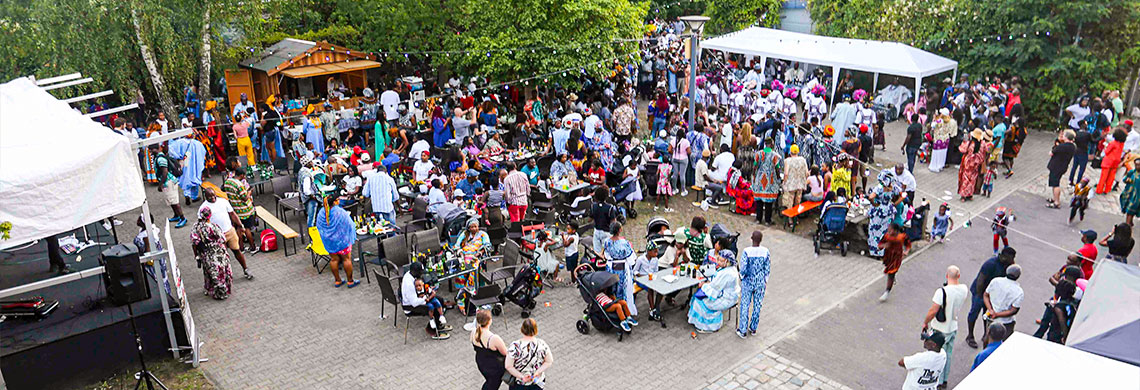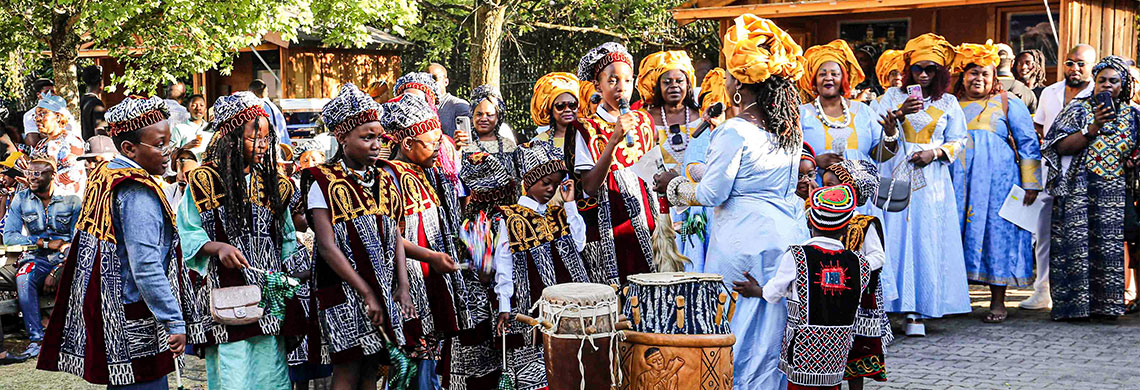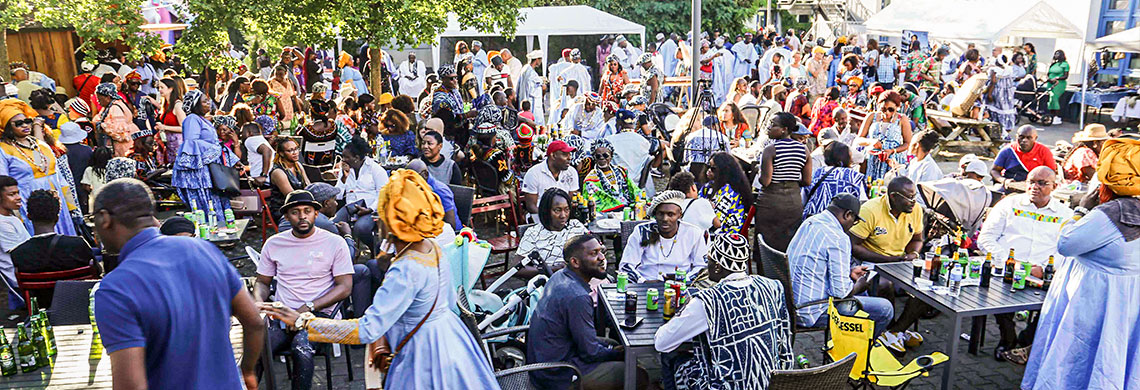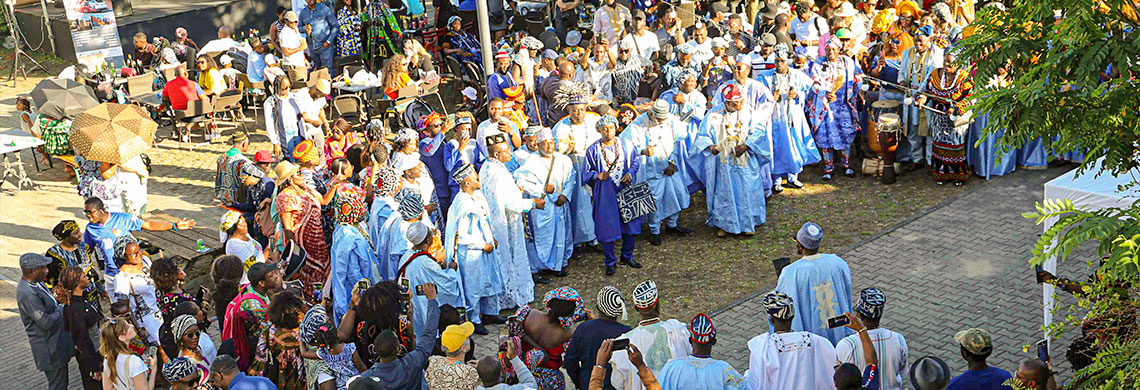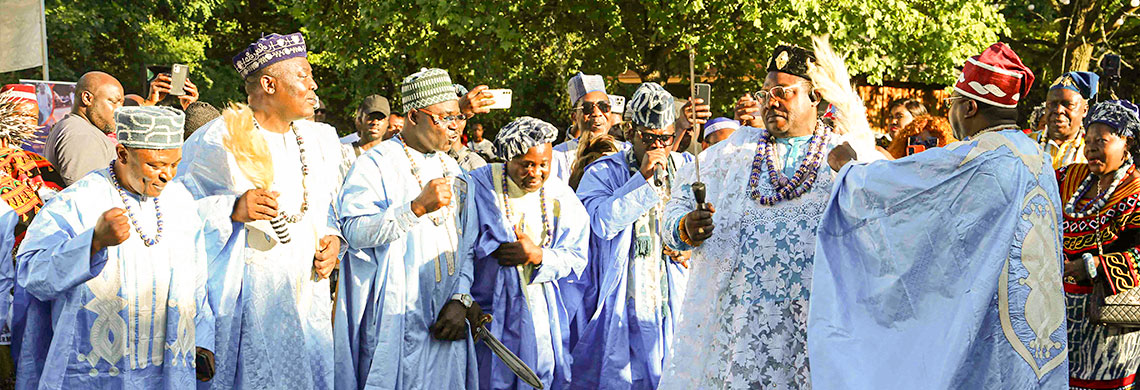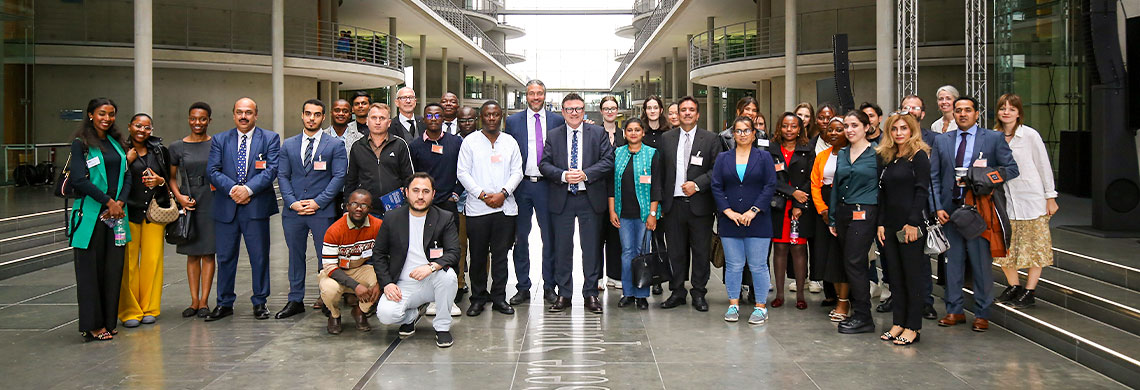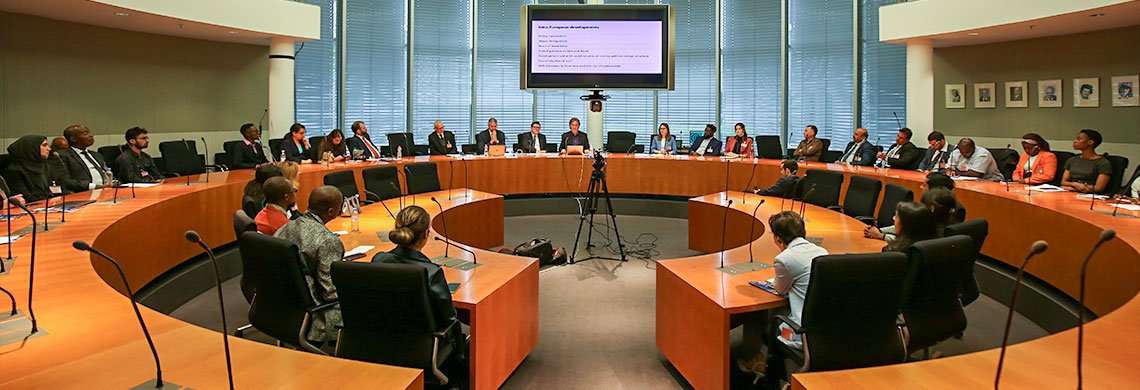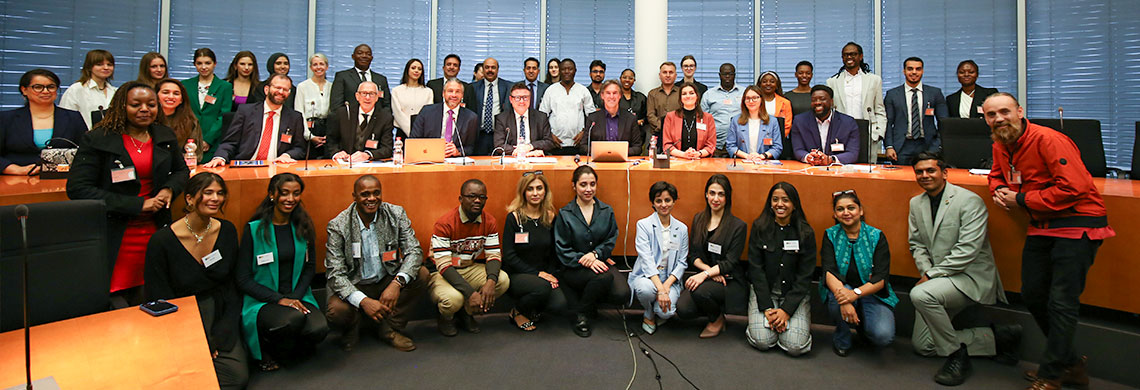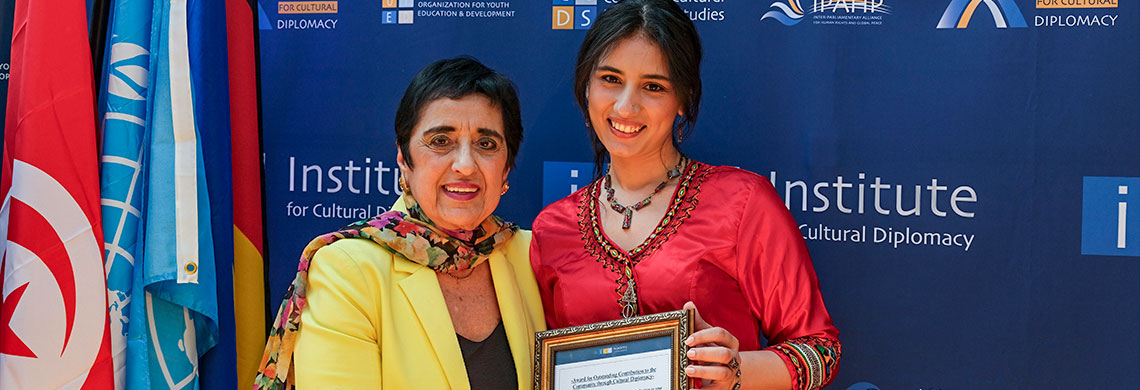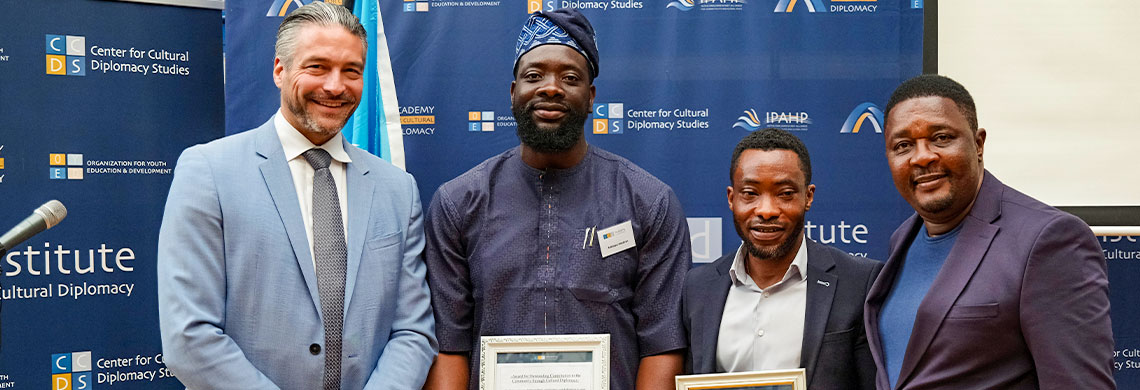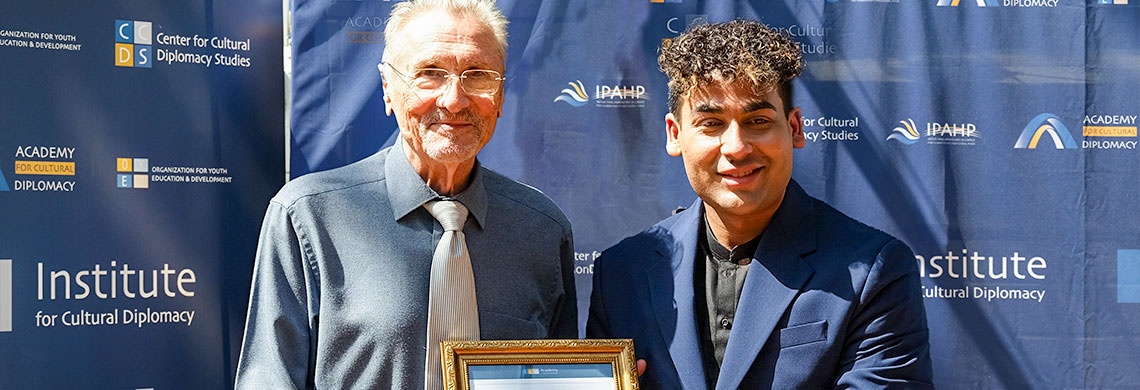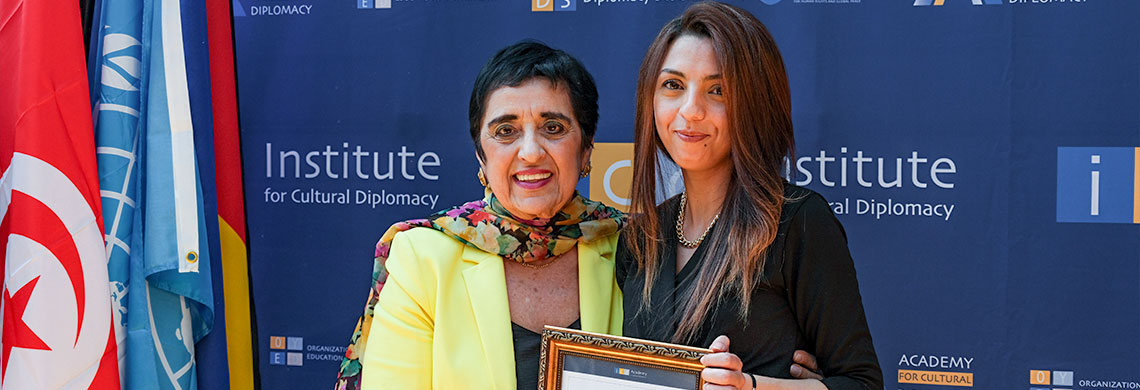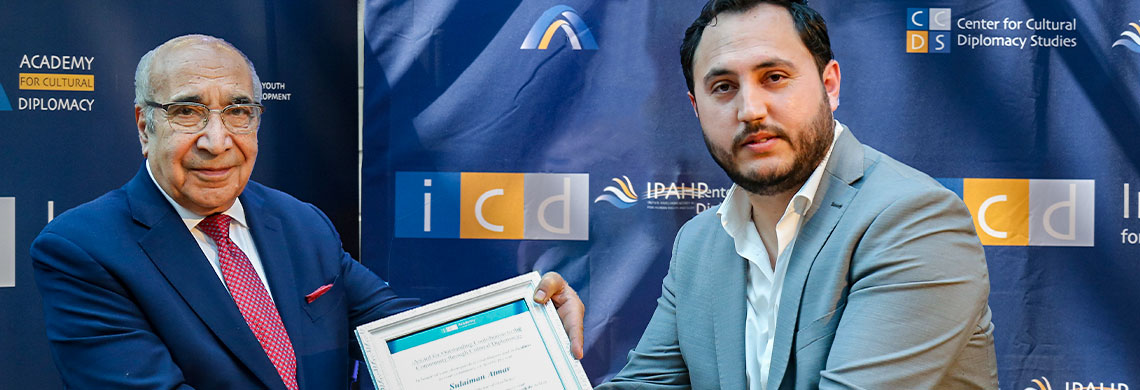Young Leaders´ Forums
The UK Meets Germany
The UK Meets Germany: A Forum for Young Leaders
(April 6th – April 10th 2010)
Forum Report
The four day conference for “The UK Meets Germany: A Forum For Young Leaders” took place in Berlin from the 6th to the 12th April. The conference examined the following subjects: a British Diplomat’s perspective on British-German relations, whether or not the UK should join the Single European Currency, the British Council and Cultural Relations, multiculturalism, Berlin’s past and present, climate policy, the importance of learning a foreign language, and the UK General Elections and Britain’s role in the EU.Amongst the forum speakers for the six-day event were leading political figures in British and German relations, the media, and academia.
Upon the conclusion of the conference, participants were given an official certificate of attendance, which provided details of the speakers who took part in the UK Meets Germany Program, and the topics discussed.
Forum Speakers
Mark C. Donfried (Director and Founder of the Institute for Cultural Diplomacy)Andrew Noble (Political Counsellor at the British Embassy in Berlin)
Dr. Patrick Hart (Director of the British Council in Germany)
Rory MacLean (Travel Writer)
Carsten Rüpke (Deputy Director of the department of Northern European states, German Foreign Ministry)
Jenny Friedrich-Freksa (Editor-In-Chief at the Institute for Foreign Cultural Relations)
Dr. Karsten Neuhoff (Research Director of Climate Policy Impact and Industry Response at the DiW, and Director of the Berlin Office of Climate Policy Initiative)
Prof. Dr. Gerhard Leitner (English Philology Department at the Free University of Berlin)
Prof. Dr. Uli Bruckner (Jean Monnet professor for European Studies at Stanford University in Berlin)
Peter Craven (News presenter at Deutsche Welle TV)
Tristana Moore (BBC correspondent in Berlin)
Locations
- ICD House of Arts and Culture
- British Council in Berlin
- German Foreign Office
- German Institute for Economic Research (DiW) Berlin
Summary of Events
Tuesday, 6th April 2010: The UK meets Germany: A Forum for Young Leaders” began at the Berlin Philharmonic where the group had the opportunity to experience the Philharmonic’s “Lunchkonzerte”, or lunchtime concert series. This initiative aims to bring exceptional music to the public, free of charge, and away from “official” music events. After returning to the ICD House of Arts & Culture, ICD Founder and Director Mark Donfried spoke to the group at length about the history and development of the field of Cultural Diplomacy and its application by state and not-state actors in contemporary international relations. Areas of particular focus were the use of Cultural Diplomacy during the Cold War, the application of Cultural Diplomacy by governments through intermediary organisations, and the difference between “Cultural Diplomacy”, “propaganda”, and “advertising”.Wednesday, 7th April 2010: The second day began with a presentation by Andrew Noble, followed by a question and answer session with the group. Mr. Noble began by speaking at length about British-German relations. This was followed by a debate on whether the UK should join the single currency. After the conclusion of the debate the group travelled from the ICD to the British Council offices, located on Alexanderplatz, where they were given an overview of the history and development of the British Council, as well as its current focuses of its activity, by Dr. Patrick Hart, and then watched the film “The Age of Stupid”, of which the British Council owns the rights.
Thursday, 8th April 2010: The third day of the weeklong seminar began with a workshop on multiculturalism in the UK and Germany. After this, Rory MacLean gave the group a fascinating talk about his personal experiences in Berlin. The group then headed to the German Foreign Ministry. There Carsten Rüpke gave a short introductory speech about the inner mechanisms of the Foreign Office and what his role entails. They then travelled together to the Reichstag where they were given a tour through the building and went up the large glass dome at the top. After the Reichstag visit the tour took the participants past the Brandenburg Gate, the Jewish Memorial and to Potsdamer Platz.
Friday, 9th April 2010: The day began with a speech from Jenny Friedrich-Freksa, who provided the participants with further insights into the nature of Cultural Diplomacy. After lunch the participants continued to look at the issue of climate change, travelling to the German Institute for Economic Research (DiW) to meet with Dr. Karsten Neuhoff. This was followed by a speech from Prof. Dr. Leitner, who spoke about why one should learn a foreign language. The forum culminated on that evening in a Panel Discussion entitled “Going to the Poles? The UK General Elections and Britain’s role in the EU”.
Saturday, 10th April 2010: The weeklong seminar was brought to a close by a group brunch on the final day. The program participants and the UKMG team had a final chance to discuss the week’s events in a relaxed environment while tucking into a continental breakfast. Final thanks and goodbyes were said and the curtain came down on the fifth weeklong seminar for “The UK meets Germany: A Forum for Young Leaders”.
Wednesday, 7th April 2010
Central daily Themes- British and German historical experiences with immigration and integration are perceived differently in Germany.
- The bilateral relationship between Germany and the UK is of equal importance to both countries.
- The place of the British pound in British identity, the single currency as an indicator of a country’s investment in the European integration project, and the possible effects of the upcoming elections on Britain’s role in the EU are the major issues in the debate of the UK joining the single currency.
- The British Council feels the need to distinguish between ‘Cultural Relations’ and ‘Cultural Diplomacy.’
Thursday, 8th April 2010
Central daily Themes- Topics such as the Turkish Prime Minister Recep Tayyip Erdoĝan’s request for the introduction of Turkish secondary schools in Germany, citizenship tests, and to what extent integration in the UK and Germany requires assimilation are important in multiculturalism discussions in both the UK and Germany.
- Berlin has been a great inspiration for artists and writers, especially considering its recent history.
Friday, 9th April 2010
Central daily Themes- Media, such as the magazine ‘Kulturaustausch,’ can be used to promote artistic exchange and dialogue within civil society and to provide information about foreign cultural policy.
- The program ZIVIC promotes international peace projects. It is managed by non-governmental organisations (NGOs) that take action in crisis areas and advise civil society and state actors on peacemaking measures.
- Possible alternatives to fossil fuels as energy sources including biomass, wave power and wind power, need to be looked into by both the British and German governments.
- Language is a tool of Cultural Diplomacy that allows one to find and appropriate styles of speaking and enter a different domain.
- The number of languages spoken across the world is rapidly shrinking as languages cease to spread and in some cases, younger generations lack interest in maintaining their language.
- The upcoming general elections will be close-run and unpredictable due to the current general resentment towards politics in the UK, and it is thus difficult to predict what future role the UK will play in Europe.

